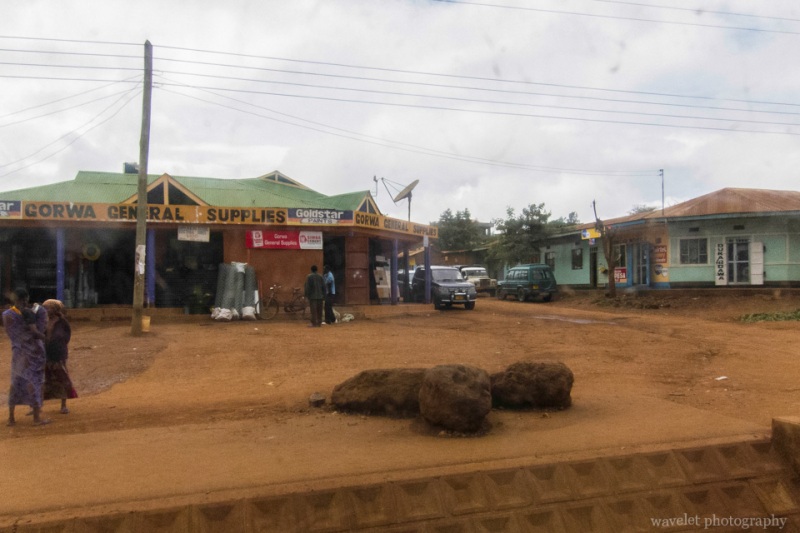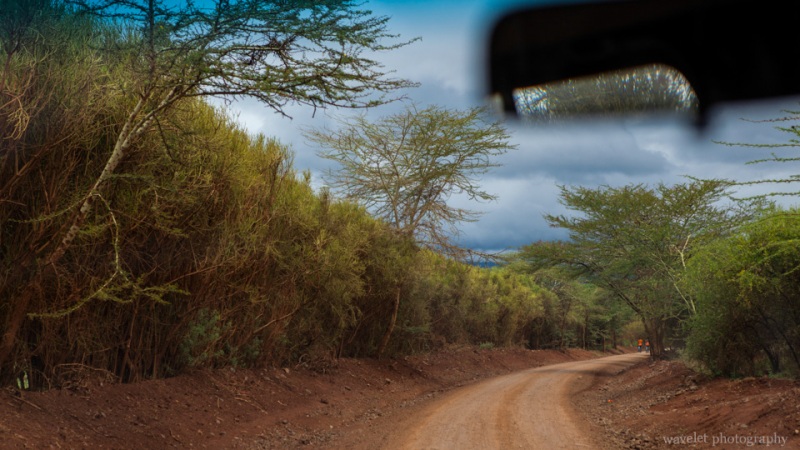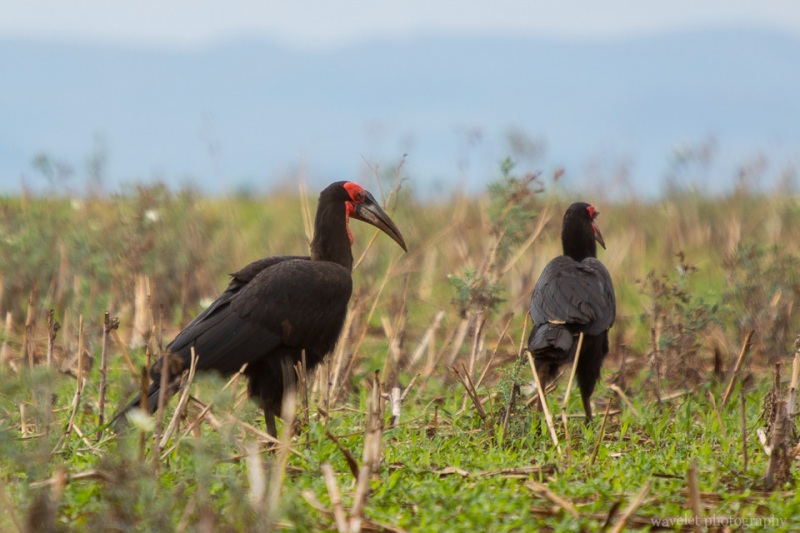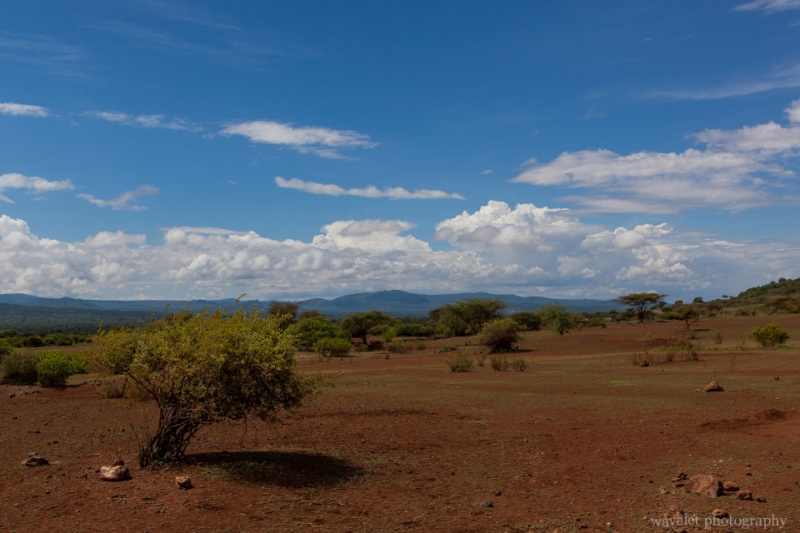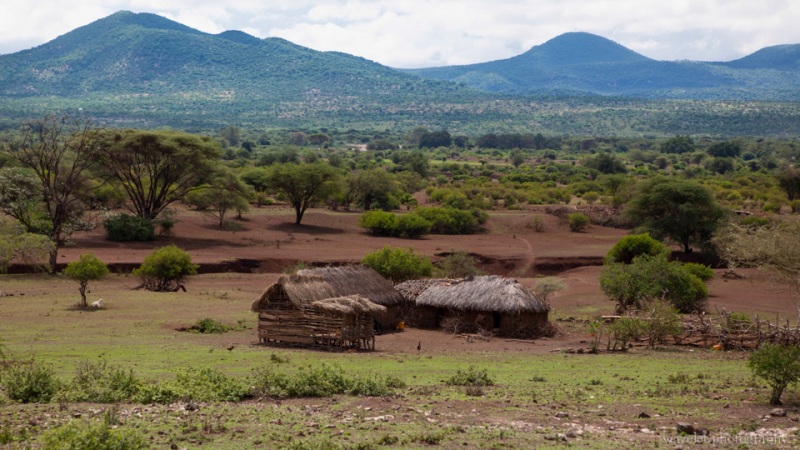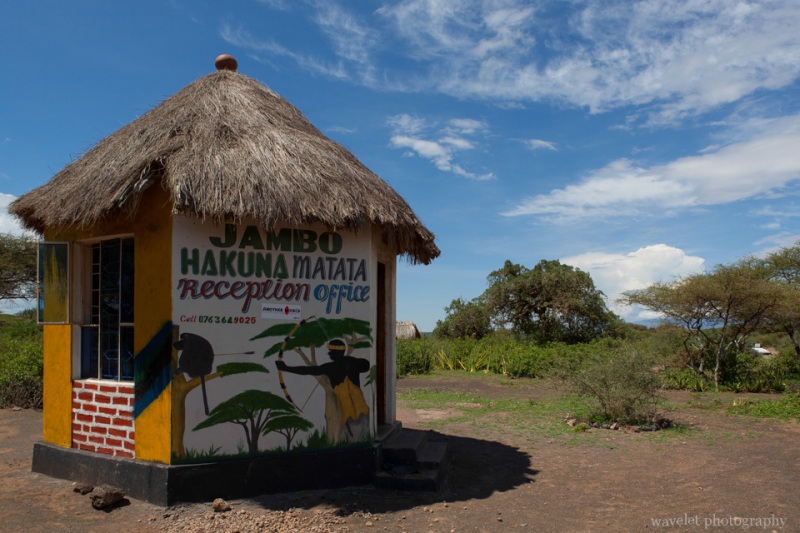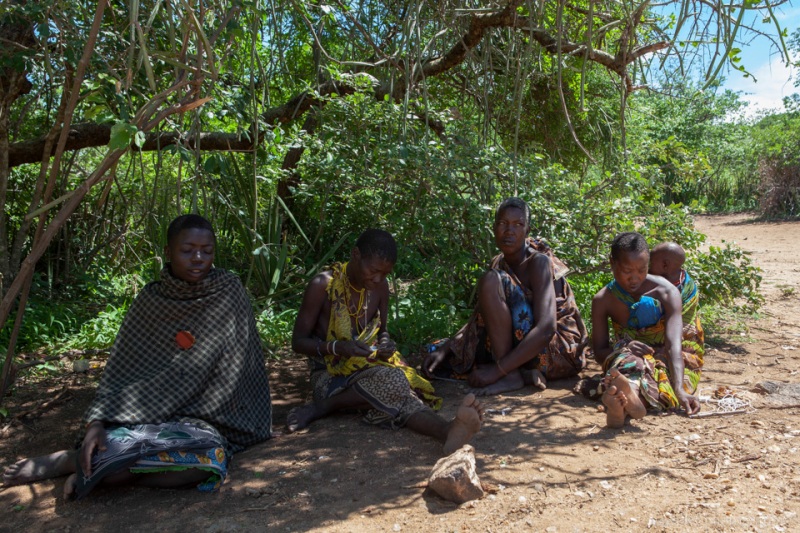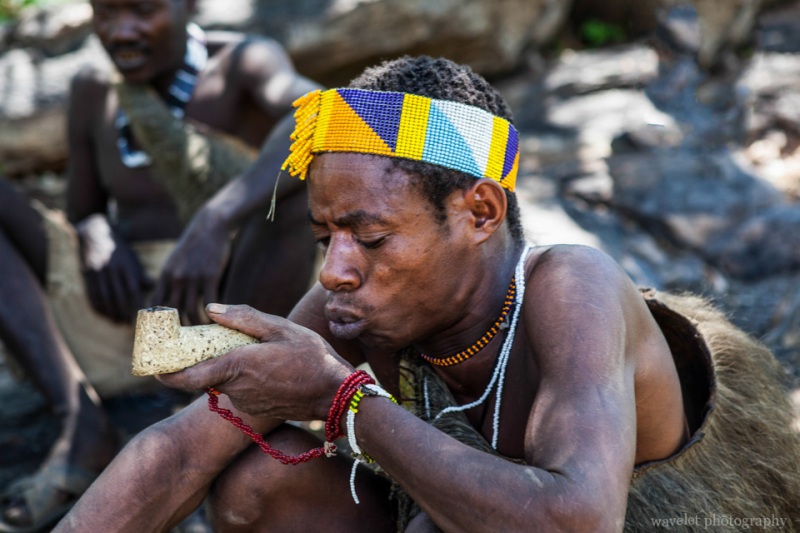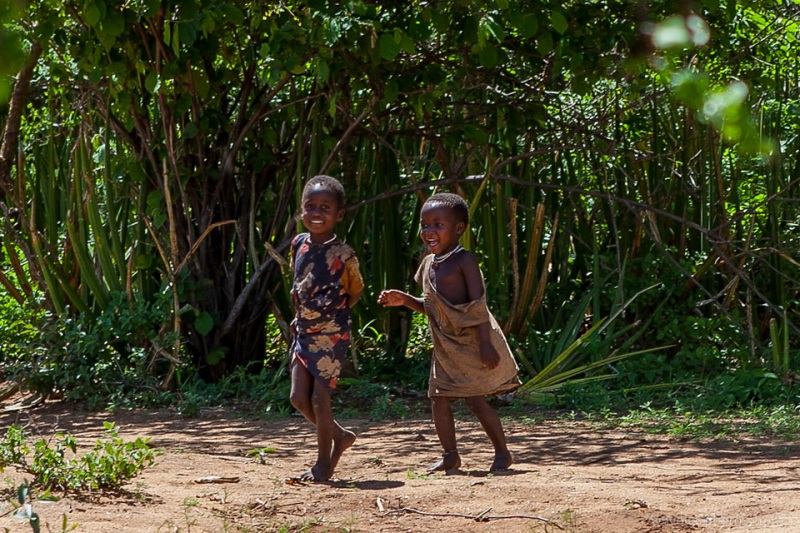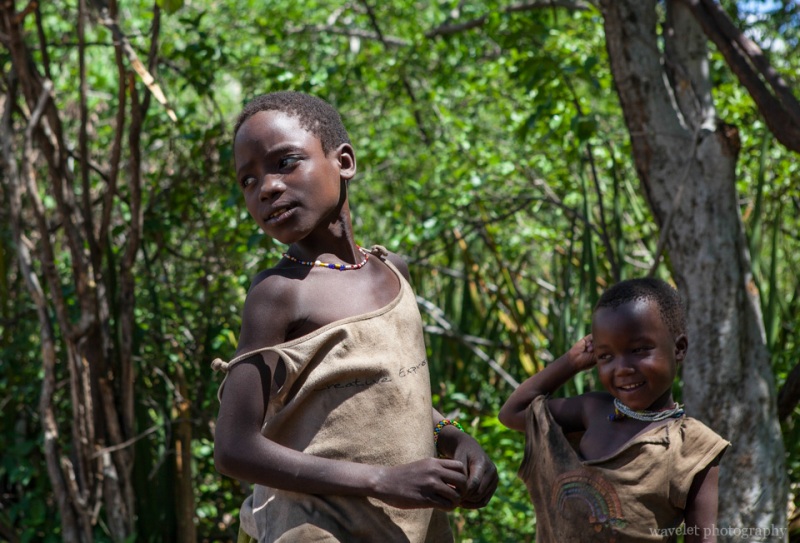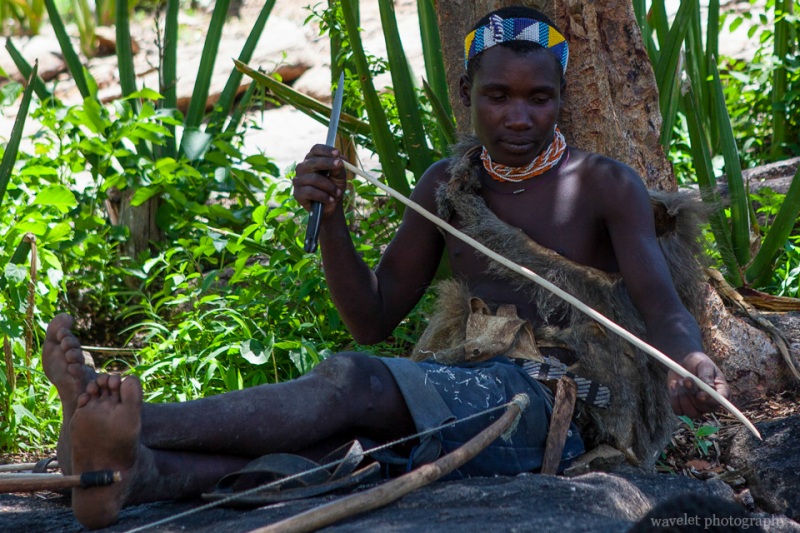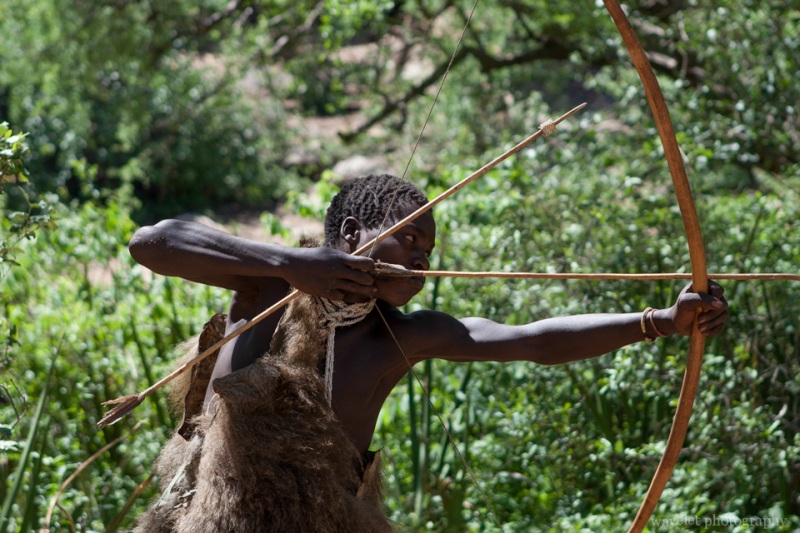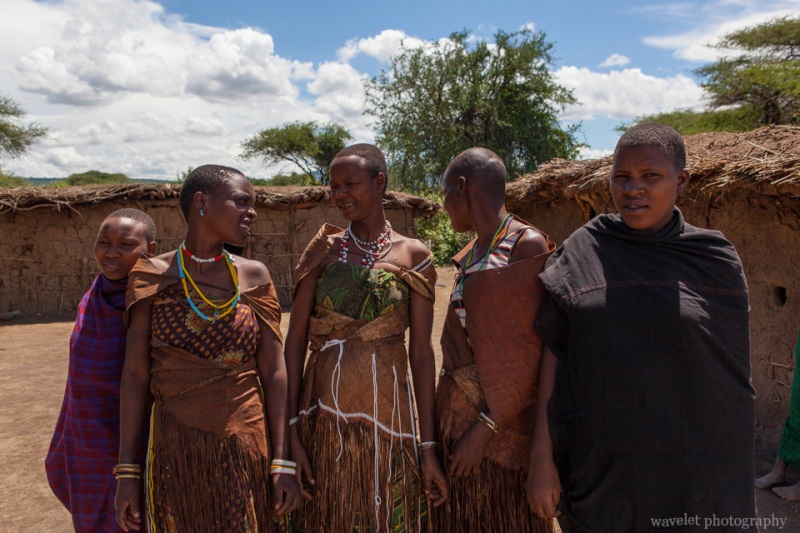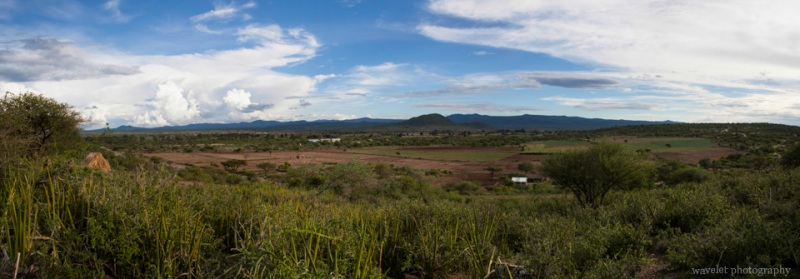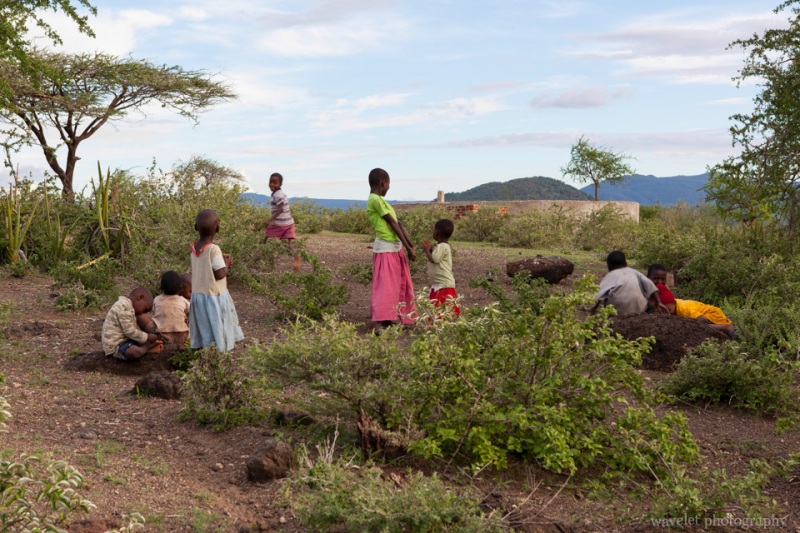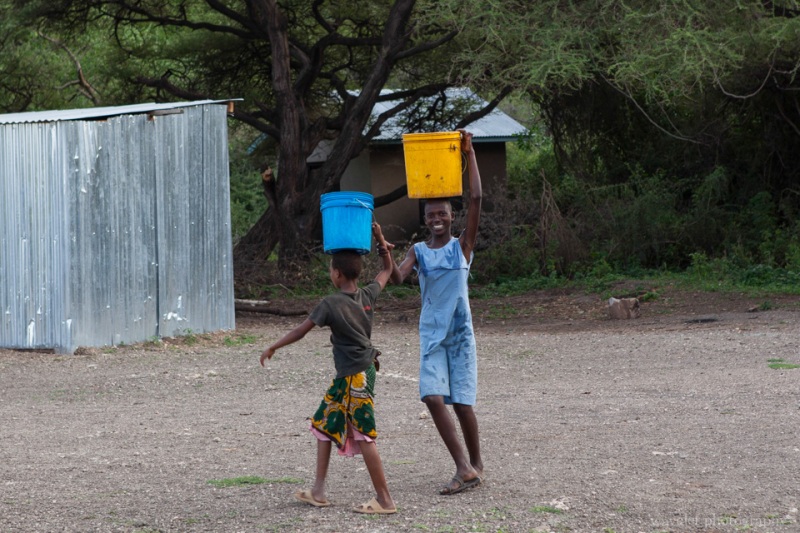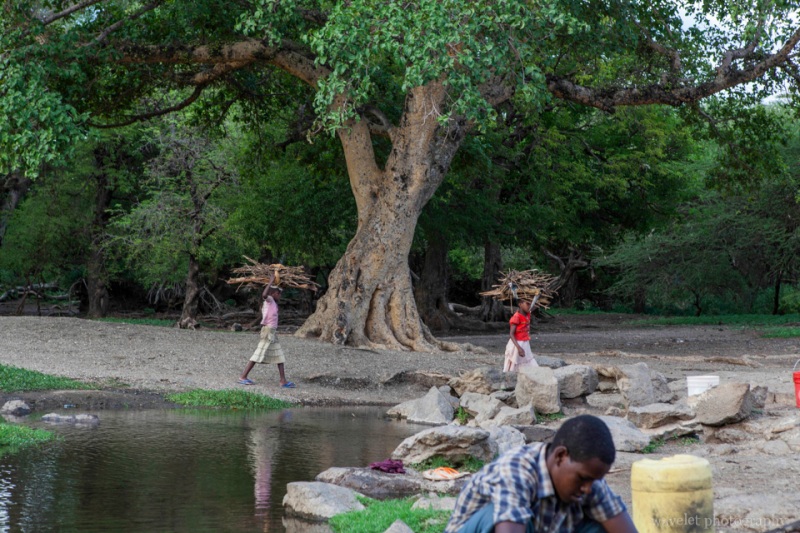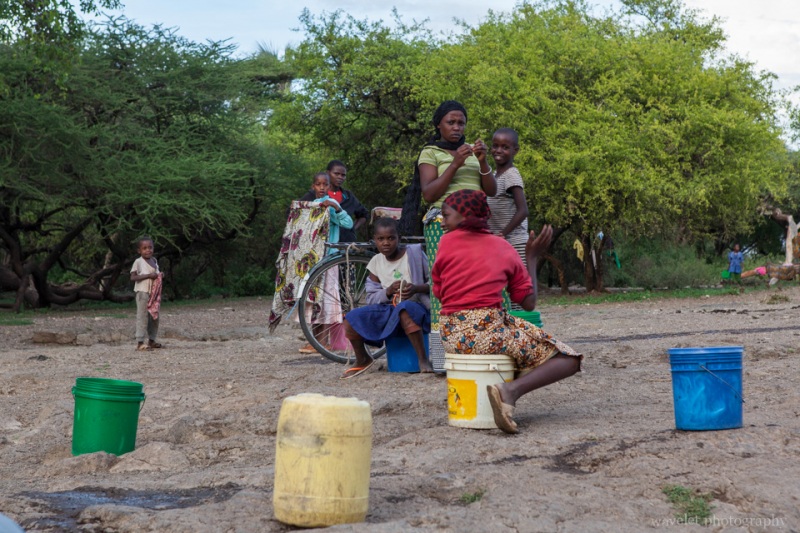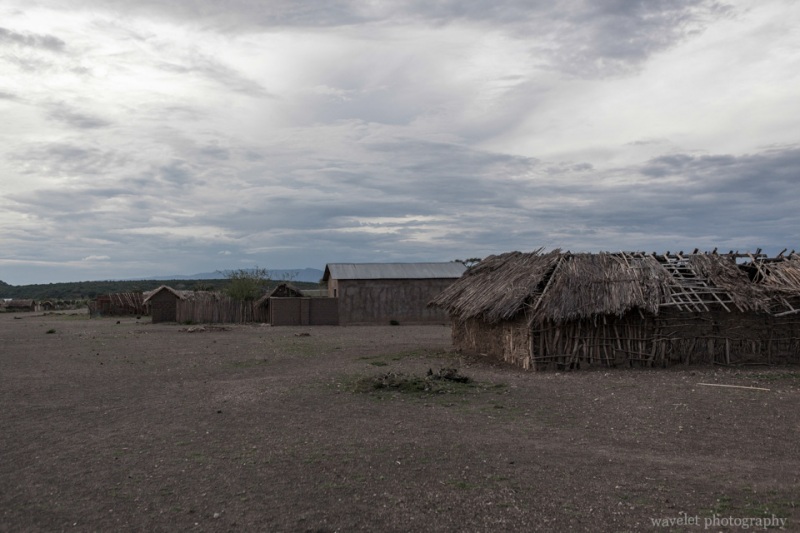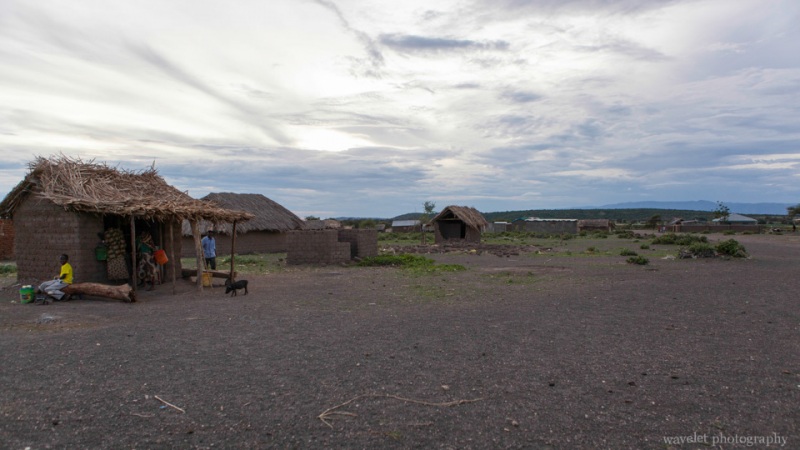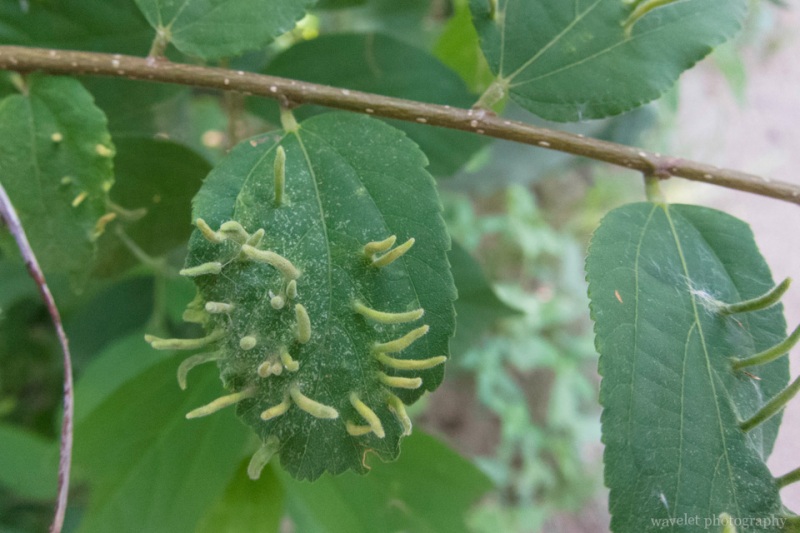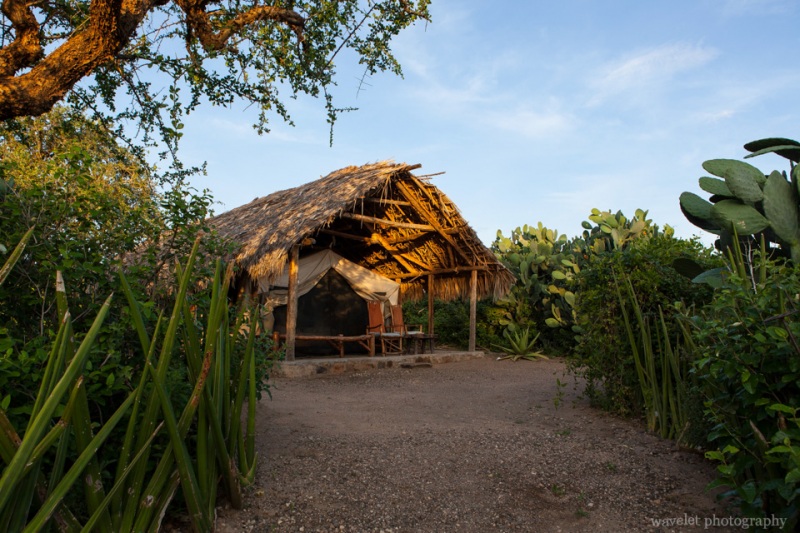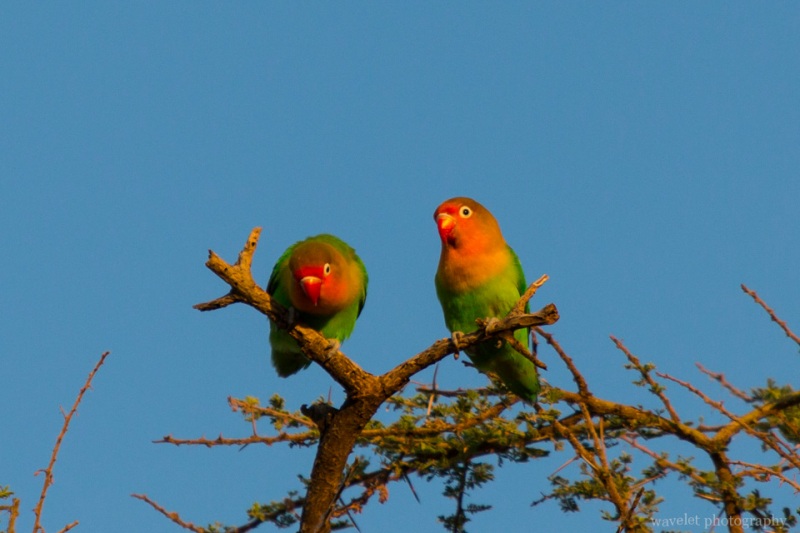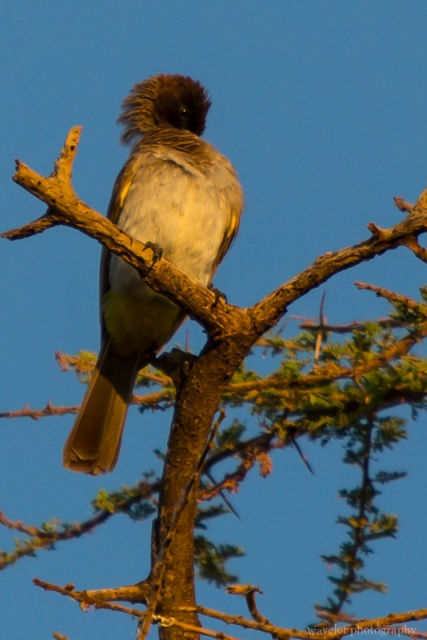2012.12.27Leaving Kirurumu Manyara Lodge at 10am, we continued driving to the south on B144. After half an hour, we reached a town. This is Karatu district, one of the six districts in Arusha region. This is Justin’s home town. We stopped by a store and he left something for his friend.
Passing the town, drove for another 3 miles, we turned left on a dirt road towards Lake Eyasi.
The road was a little bumpy. It’s getting hotter as we went further south. There were no high vegetation, but only bushes here and there.
After about an hour, we saw a hut at the roadside. This is the reception office of Lake Eyasi area. A man working in the office joined us in the jeep. He would be our guide to visit Hadzabe bushmen and Datoga tribe living in this area.
Keep driving for another 5 minutes, we turned off the road and drove into the bush. All Hadzabe bushmen live around Lake Eyasi. Their total population is under 1000. They are the only hunter-gatherers in Africa. There were several attempts to bring in other cultures or even administration to the group, but all failed. They still live today as they have lived for thousands of years. The current approach is to keep them informed about political events and make sure they receive fair treatment in this fast-changing world. Inevitably, the intrusion of tourism affects their traditional way of life, but on the positive side, more income offers more opportunities for their kids to get some education.
It’s at noon of the day. Most men and women in the tribe just sitting in the shade. Some of them were smoking or making tools for hunting. They demonstrated some of their skills, such as making fire with hand drilling and bow shooting. The guide also showed us the rock that the bushmen use to shelter from rain and the tree that they use to display skulls of animals they hunted. At last, several young men and kids gathered in a circle, sung and danced together. The other thing that visitors can do is to hunt with them in the early morning. Most of time, they shoot down birds with their bows; very occasionally, they might be able to catch Baboons.
Left where Hadza people live, our next stop is to visit a family of Datoga Tribe. Their house was next to the main road, so I am not sure if they are real indigenous people or staged for tourists. Datoga men practice polygamy. All wives in the family came out to welcome us. We enter their cottage with very low roof and watched them grinding corn. At another side of the yard, we watched them melting bronze metal and making arrows. They also make bracelets for sale. The guide told us that they got their raw materials from nearby village. We saw them using bronze pipes. They already have access to these modern industrial objects, but they make them into arrows for primitive people. The fact itself is quite surreal to me.
We checked into Tindiga Tented Camp at around 2pm. Compared to the first two lodges, this camp is much more basic. The front desk was located in a small dining room. We were the only guests on that day.
After having some rest, Justin took us to drive around the area. The jeep climbed to a nearby hill. At its east side, there were crop fields of the nearby villages; at the west, we could see Lake Eyasi about 1 mile away. Justin said the lake shore were all mud because of the rain and difficult to access,
Justin wanted to show us how ordinary Tanzanians live, so we went to the Qaund’ded Village at the foot of the hill. We first stopped by a small pond – this is the water source of the village. Young men and women carry water from here for their daily usage. Most people didn’t mind me taking pictures, but one girl was unhappy about that, so I stopped.
We drove through the village. Justin said the climate of this area is good for growing crops and villagers work hard, but by looking at their shelters, these villagers must still live in deep poverty.
We had dinner together with Justin. We talked about various subjects, such as the interesting brotherhood relationship between China and Tanzania in the past; but mostly we talked about our everyday lives, the marriage tradition, education and so on. Justin was quite unhappy about western influence on Tanzania’s school system. He felt that kids now a day were so spoiled. He said if he had choice, he’d send her daughter to the school that allow corporal punishment!
I was woken up by chirping birds the next morning. I had a walk around the camp. The morning sun was warm, not harsh yet. I got some good shoots on those birds.
